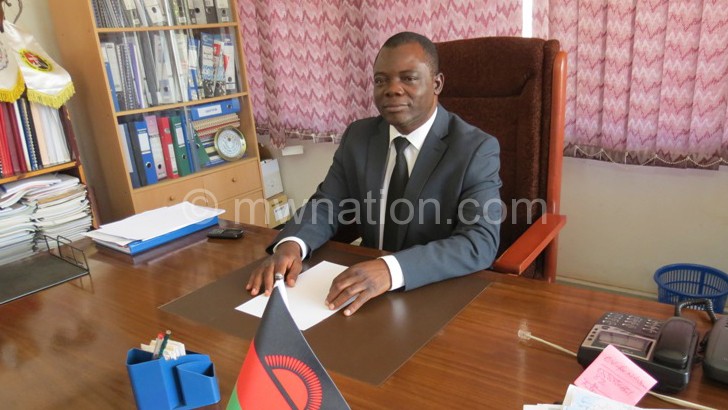Changing the face of sports
There is no doubt that Malawi is a country that is gifted when it comes to sports politics. Currently, the Malawi netball team, the Queens, is sixth in the world and second in Africa. The Malawi national football team, the Flames, is ranked 101st on Fifa’s rankings. Other African countries like Zambia are also competing well in other sports like hockey and tennis.
There have been suggestions from many quarters that sporting activities in the country could improve if Malawi had better facilities. The country’s largest stadium, Kamuzu Stadium, is in a dilapidated condition. Parts of the stands are not occupied for safety reasons. There are no chairs and spectators sit on slabs.

Other notable stadia, Civo and Silver, are not only small but old-fashioned as well. Government realised the need to have a modern stadium with modern facilities. A decision was, therefore, made to have a modern stadium which the Government of the Peoples Republic of China said was ready to construct.
Thirty-two hectares of land for the project were identified in Area 48 in Lilongwe and on July 1, 2013, the Chinese Company, Anhui Foreign Economic Construction (Group) Corporation Limited started the construction work. The same Chinese company also built the Malawi Parliament.
Chief Architect in the Ministry of Transport and Public Works Knight Munthali gave details about how the stadium, already named Bingu National Stadium (in honour of the late President who championed the project) would look like.
“It is fair to say that the place will be a sporting village. For the stadium, it will have 40 092 seats, gyms, offices, shops, VVIP (Very Very Important People) facilities and VIPs (Very Important People) facilities as well as large rooms for seminars. It will also have large referees’ dressing rooms, a hospital for doping tests, CCTV, an electronic board as well as a running track,” disclosed Munthali. The roof of the stadium will be 80 percent covered.
It will also have seats with three colours of blue, green and red and will also be disability friendly. For the CCTV, Munthali said it will help the police to control the crowds by detecting where problems are emanating from.
One of the issues facing the country is cheating in gate collections. On October 1 2015, the game between crowd-pullers Big Bullets and Be Forward Wanderers realized far less money although many people went into Kamuzu Stadium.
Everyone was surprised and Big Bullets players boycotted training till an explanation was given as to what really happened with gate collections. Some officials, who were suspected of being involved in the scandal, were suspended.
In order to minimise that, Munthali disclosed that the paying booth will be a distance away from the stadium and that only those that have receipts will be allowed to pass through the screening gates. The stadium is expected to be completed on November 30 this year.
Director of Sports in the Ministry of Sports and Culture James Ndalama said once the stadium is completed, it will change the face of the country in many ways.
“Malawi will be able to host international competitions and that will help to promote tourism, thereby generating foreign currency. In addition to improving the standards of football, bilateral relationships will also improve,” said Ndalama.
The director admitted that lack of big stadia negatively impacted on sports in Malawi.
Ndalama, however, said the stadium will bring more benefits to the country outside the sporting industry.
“It will create employment since many people will be employed to manage it. Again, it will provide business opportunities because there will be shops in the stadium. We are talking about a world-class stadium here,” said Ndalama.
Finally, the official pointed out that the stadium will contribute to the infrastructural development of the country.
“The stadium is magnificent and beautiful. As such, it will change the face of Lilongwe,” he said.
Ndalama, however, expressed concern that the stadium might be damaged through vandalism which, he noted, is difficult to control.
“Government will continue to sensitise the public on the need to take care of the sports facility, the first of its kind in the country. We will continue to engage all stakeholders, —and administrators so that this gem is well kept,” he said.
Ndalama, reminded the public that the country has a sports code of conduct which needs to be followed. He however commended China for coming to the rescue of the Malawi government by constructing the stadium.
China has increasingly become a friend of Africa by engaging in a number of development activities in African countries. This follows the Fifth Ministerial Conference of the Forum on China-Africa (FOCAC) held in Beijing, China, from 19th to 20th July 2012 where ministers of Foreign Affairs and in charge of Economic Cooperation from China and 50 African countries, and chairpersons of the African Union Commission, attended.
For the past 12 years, FOCAC has acted as a bridge in consolidating China-Africa traditional friendship, strengthening political mutual trust, deepening practical cooperation, enhancing exchanges and mutual learning and advancing comprehensive development of the new type of Africa-China partnership.
Since Malawi severed ties with Taiwan in 2008 and switched to the People’s Republic of China, a number of development activities have been initiated in the country. The Bingu Stadium fits into FOCAC plans of supporting sporting activities in Africa.






